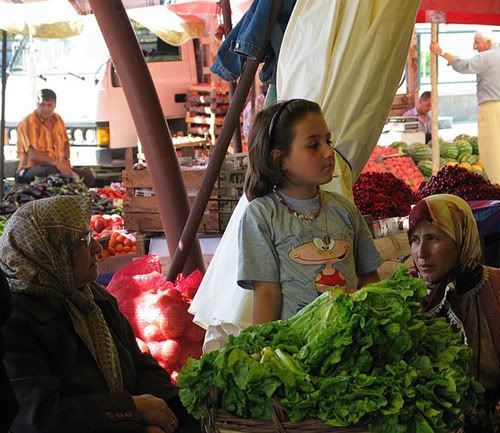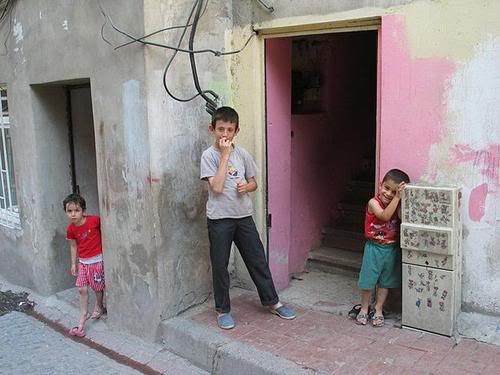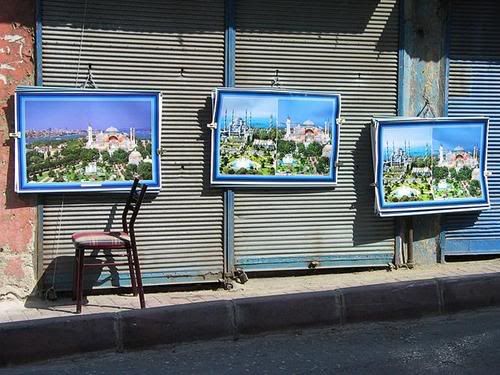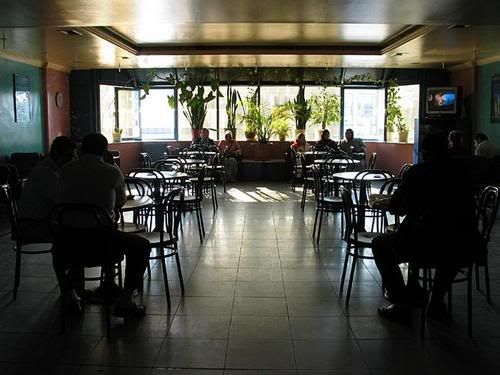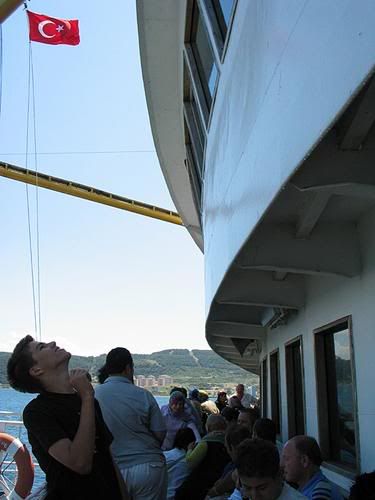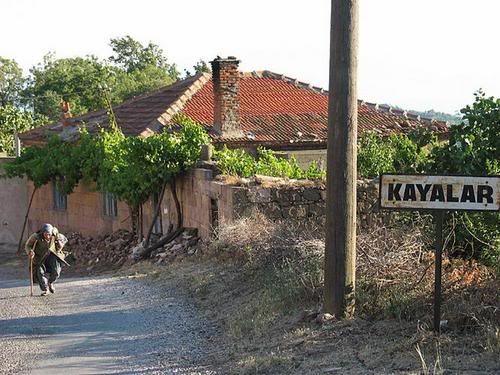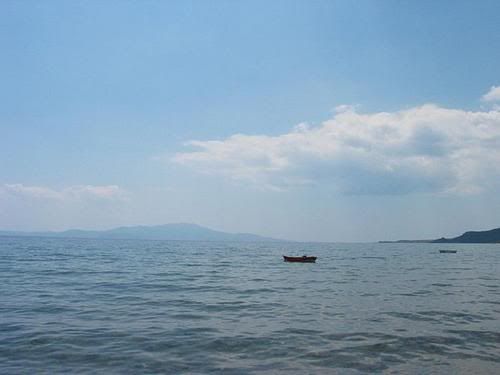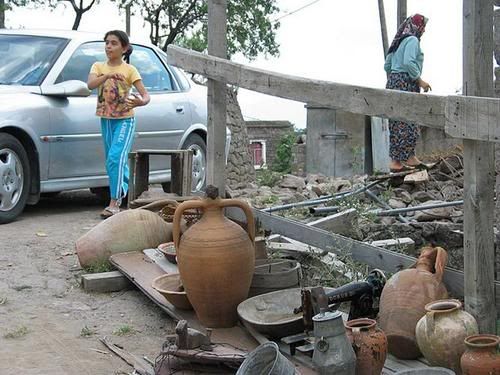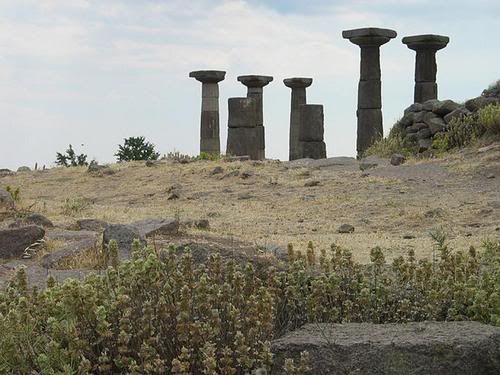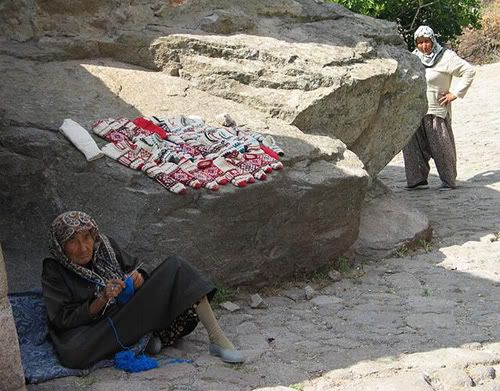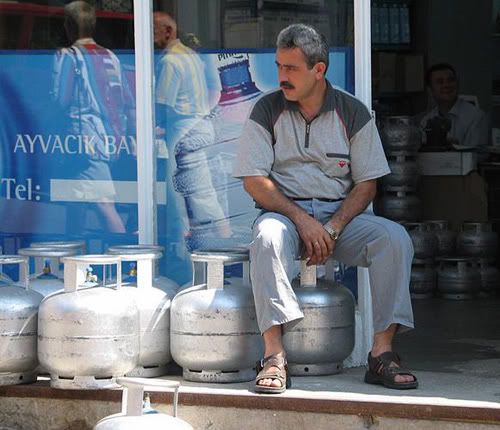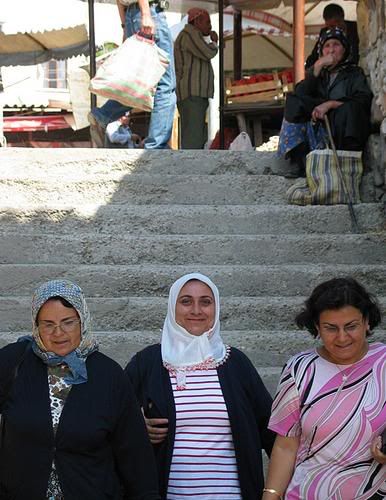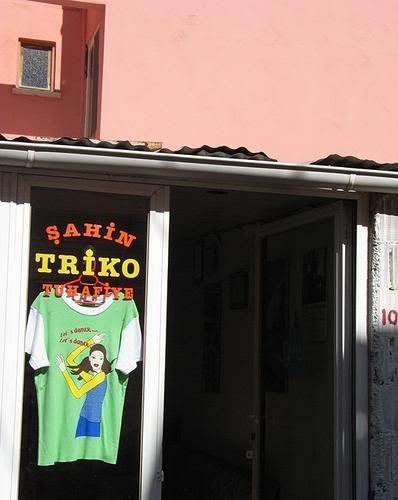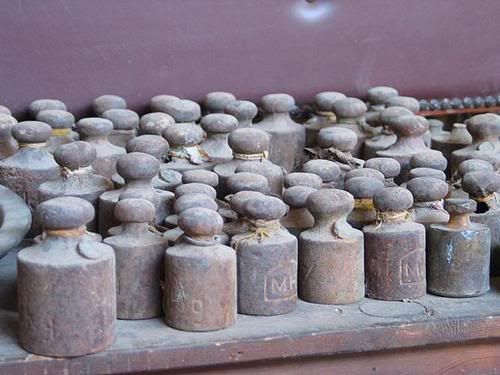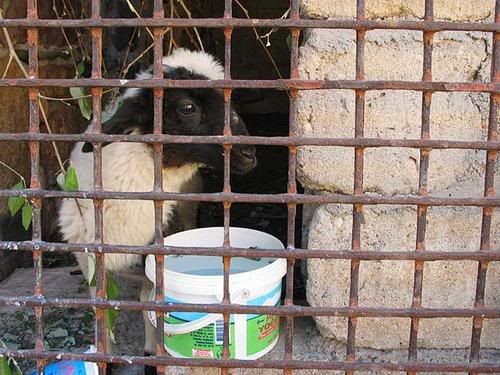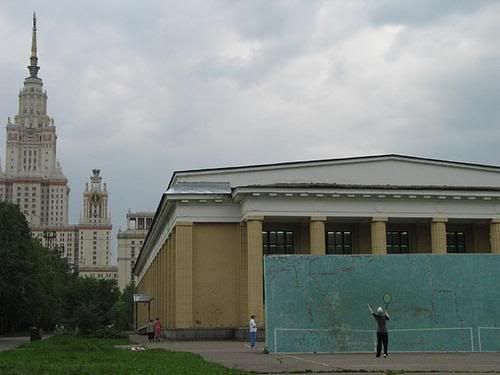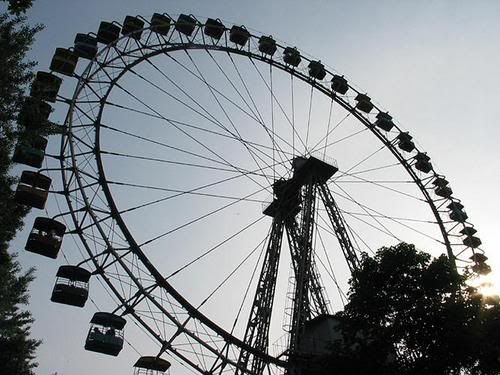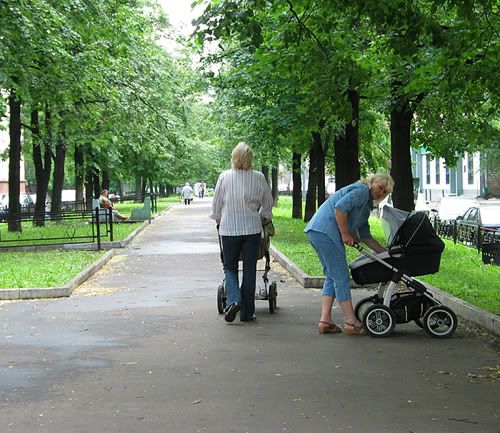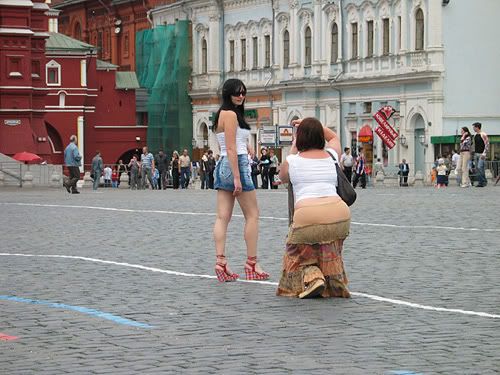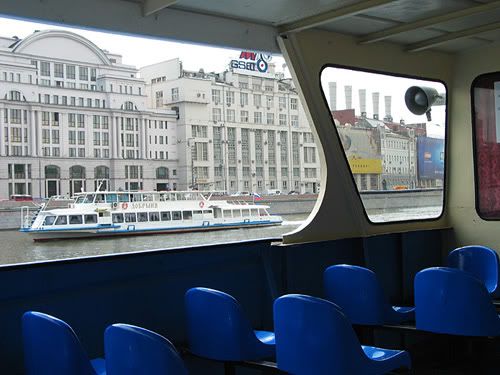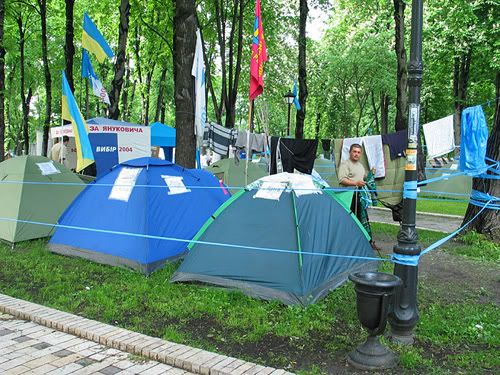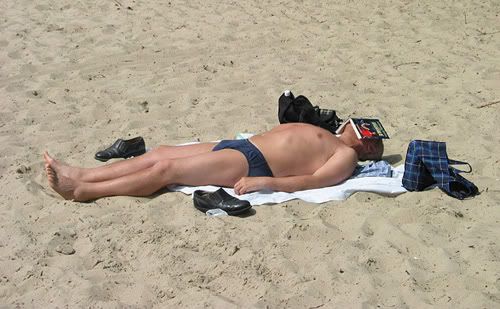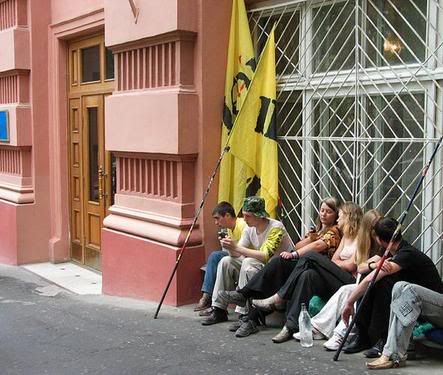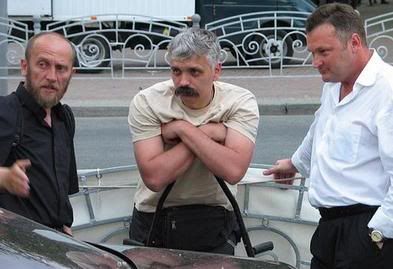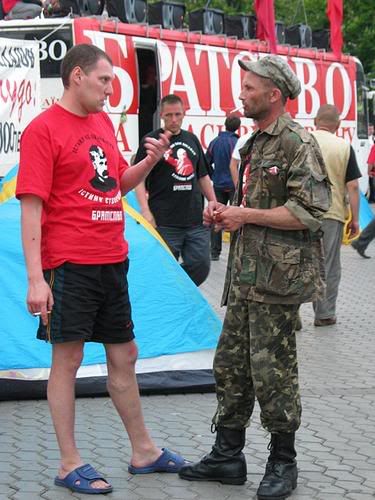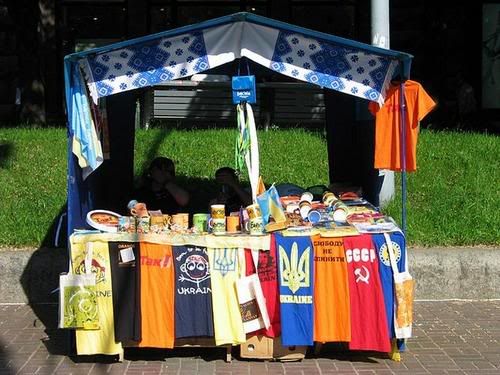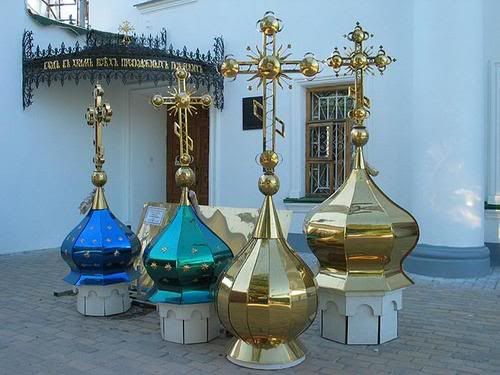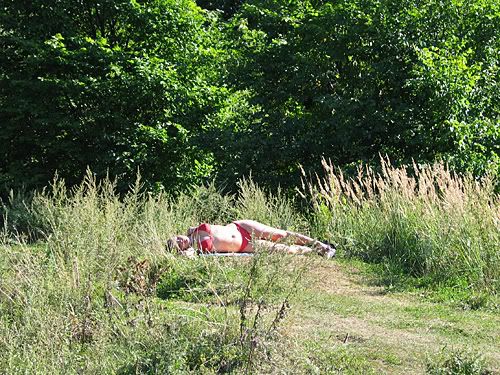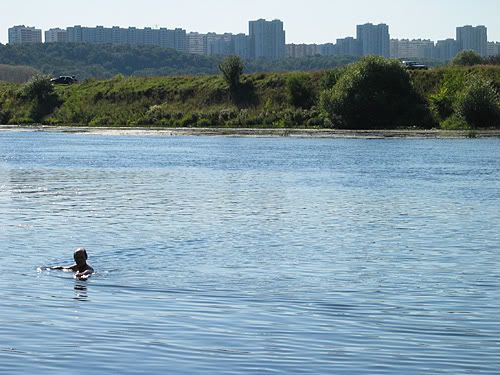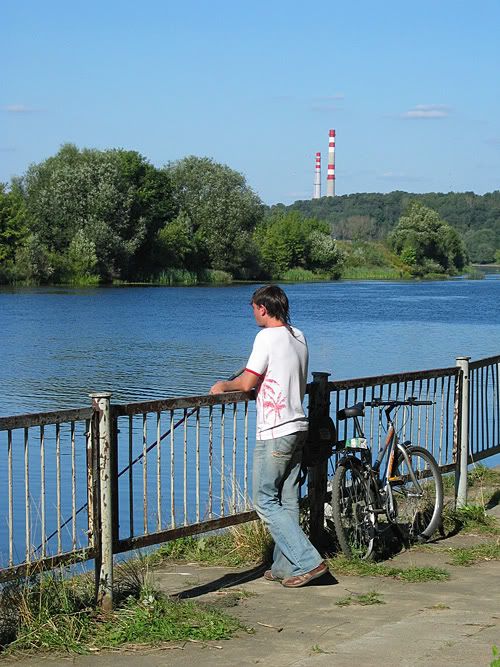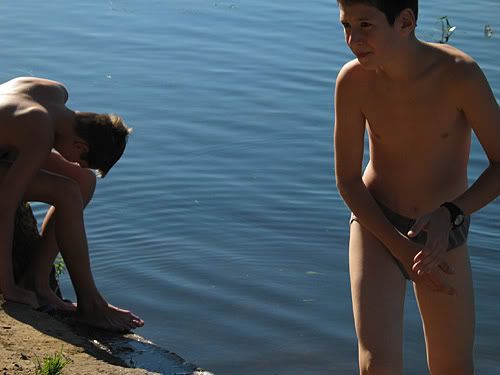Slowly, I'm getting rid of the mess in my files...
Below is an Orange Revolution text I was asked to compile for a fledgeling U.S. publication,
World Pulse Magazine, this past spring. It's something of an ode to the Ukrainian people who've managed to avoid turning their country into yet another frontline - and it was meant for the magazine's Frontline Journal section: "The real stories behind the headlines. Personal journal accounts of lives from the frontlines of conflict and courage."
World Pulse Magazine, however, ended up publishing only a bunch of my photos (and slightly misspelling my name, Khoklova instead of Khokhlova), alongside a piece by Tatyana Goryachova, editor-in-chief of
Berdyansk Delovoy newspaper: "...the writing we have from a brave Ukranian woman journalist whose newspaper kept getting shut down during that time & her car was nearly run off the road!"
---
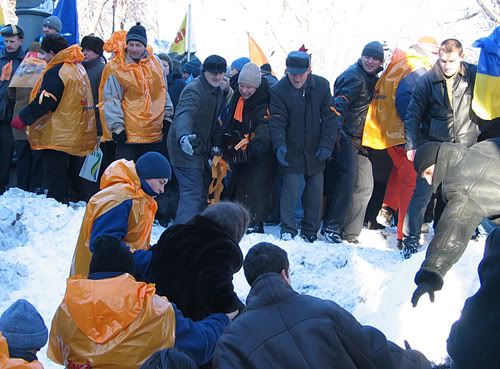
A FRIENDLY REVOLUTION
by Veronica Khokhlova
Throughout the night of Nov. 22-23 I kept going to the room facing Khreshchatyk to look out of the window.
Out there in the freezing cold were some 200 tents, nearly 2,000 people in them, and as many hanging out nearby. I could barely see them from behind the chestnut trees, and I heard nothing but the honking of the cars – three beeps in a row, a wordless variation of the “Yush-chen-ko!” chant. I rushed to the window every time the honking intensified: we were all expecting riot police and/or thugs hired to pose as Yanukovych supporters to attack the newly-erected tent city at 3 a.m.
During one such trip to the window, I saw half a dozen young men turning over a bench as weighty as a small car, and heaving it away, slowly, each step a grueling endeavor. On any other night, I would’ve identified them as drunk mischiefs, but these boys – all wearing something orange - were not stealing the bench just for fun: they were hauling it in the direction of the barricades set up at some distance from the tent city entrance. After they were gone, I suddenly realized that Khreshchatyk’s famous chestnut tree alley had no more benches left – the boys had just dragged the last one away.
***
The following night, Nov. 23-24, Yanukovych supporters built a tent city of their own, on a hill in the park, across the street from the Cabinet of Ministers and just a 15-minute walk away from Maidan Nazalezhnosti. A confrontation between the two camps – pro-Yushchenko “Orange” and pro-Yanukovych “Blue” – seemed inevitable.
***
Nov. 25 was a wonderful day, sunny and freezing. At noon, several hundred “Blue” tent city dwellers lined up on the hill in front of their tents. The “Orange” crowd was gathering below. They were so peaceful that even the pleas from the friendly traffic cops didn’t go unheeded: “Please, will you step back to let the cars pass? Please?” And they did, and most drivers were smiling and honking three times as they drove by.
Very soon, however, everything around turned orange, the cops and the cars vanished, and the “Blue” crowd on the hill suddenly looked very tiny. I relocated to a higher point near the park entrance and stood there, watching and taking pictures, awed and up to my knees in snow.
One by one, the most daring “Orange” men began climbing the hill and mixing with their opponents, talking to them, arguing, laughing, shaking hands. Simultaneously, tens of thousands in the “Orange” crowd started chanting: “Skhid ta zakhid razom!” (“East and West together!” – referring to the imaginary chunks Ukraine is divided into, the chunks viewed by many as two different worlds ready to collide and explode) and “Slava shakhtaryam!” (“Glory to the coal miners!” – referring to the people of Donbas, a coal-mining region and one of Yanukovych’s strongholds).
Some in the “Blue” crowd didn’t like the “Glory to the coal miners!” slogan. "What coal miners?! We’re from Crimea, not Donbas," they yelled indignantly. “It doesn’t matter now,” the “Orange” guys yelled in reply and continued the chant: “Slava shakhtaryam! Slava shakhtaryam!”
That was poignant, funny, inpiring and overwhelming. And frightening. A peaceful gathering suddenly turning into a disaster, a stampede, a violent mess: watching it on TV is one thing, imagining being there is something completely different.
But that was just a fleeting thought. More and more “Orange” people were now climbing the hill toward the “Blue” ones. Next to me, an old village woman wrapped in a woolen scarf kept sliding down, and several men teamed up to push and pull her up, with great care. I slipped and fell, too, on my way up, but was rescued by a few pairs of strong male hands, “Orange” and “Blue.”
Up in the park, mixed-color groups stood everywhere, chatting like old buddies. Fires were set near the “Blue” tents, and we all took turns getting warm.
A journalist asked a metallurgic plant worker from Dnipropetrovsk region: “Do you think there’ll be a civil war in Ukraine?” The man, a Yanukovych supporter, replied: “No way. Ukrainians don’t fight each other. East and West are together.”
***
Nov. 26 was an extremely cold and slushy day. Five teenage girls waited patiently to be allowed beyond the cordon separating the protesters from the riot police guarding the Presidential Administration. The girls brought yellow flowers for the cops.
An 18-year-old medical college student was running around, distributing medicines and vitamins to the protesters. Of a dozen or so tents, three were marked with red crosses. The boy said he was prepared to provide first aid if the riot police were forced to attack the protesters. When a foreign TV journalist began interviewing him, his friend wanted to stand next to him, but then changed his mind: “No, I can't, if my father learns I’m here, he'll kill me!” The medic boy replied: “Don't be such a fool, this won’t be on Ukrainian TV!”
***
One of the ubiquitous slogans was "Militsiya z narodom!" ("The police are with the people!"). Another was "My razom, nas bahato, i nas ne podolaty!" ("The people, united, will never be defeated!") One snowy day, young people standing for hours face to face with the riot police, combined the meaning of the former with the beat of the latter and and came up with the best slogan ever: "Idit' pohriytes, a my za vas postoyim!" ("Go and get warm, and we'll stand here for you!") The cops – Ukrainian citizens as young as many of the protesters – just couldn’t help smiling.
